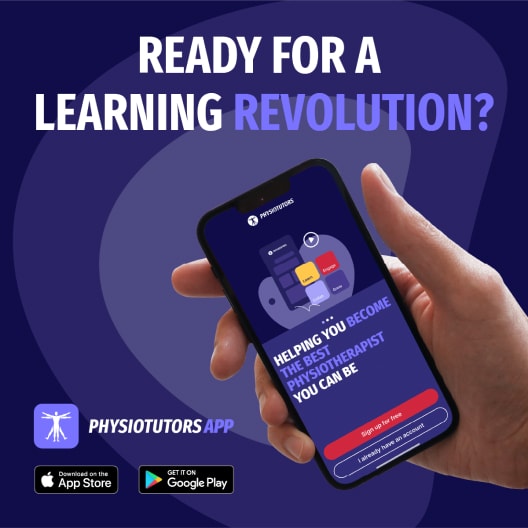The Role of Artificial Intelligence in Physiotherapy Practice: Introducing the AI Clinical Assistant

Artificial Intelligence (AI) is revolutionizing various sectors, including healthcare. By leveraging advanced machine learning algorithms and vast datasets, AI can assist clinicians in making informed decisions, planning effective rehabilitation strategies, and accessing evidence-based information. This blog post explores how AI is transforming physiotherapy practice, with a particular focus on the innovative developments at Physiotutors and our AI clinical assistant, “chatCPG.”
1. The Evolution of AI in Healthcare: The Rise of AI Clinical Assistants
AI has been making significant strides in healthcare, offering solutions that improve patient outcomes, streamline workflows, and enhance clinical decision-making. In physiotherapy, AI clinical assistants can analyze complex data sets, recognize patterns, and predict outcomes, providing valuable insights to clinicians. This capability is especially beneficial in a field that relies heavily on evidence-based practice and personalized care.
2. Enhancing Clinical Decision Making with AI Clinical Assistants
Clinical decision-making in physiotherapy often involves synthesizing information from various sources, including patient history, clinical guidelines, and recent research findings. An AI clinical assistant can assist in this process by:
- Data Analysis and Interpretation: AI algorithms can process large volumes of data quickly and accurately, identifying trends and correlations that may not be immediately apparent to clinicians. This includes analyzing patient records, imaging results, and clinical notes to provide a comprehensive view of a patient’s condition.
- Predictive Analytics: AI clinical assistants can predict patient outcomes based on historical data, helping clinicians anticipate complications and adjust treatment plans accordingly. For instance, machine learning models can predict the likelihood of recovery based on factors such as age, severity of the condition, comorbidities, and other prognostic factors.
- Personalized Treatment Recommendations: By analyzing data from similar cases, an AI clinical assistant can suggest personalized treatment options tailored to the individual needs of patients. This ensures that interventions are not only evidence-based but also customized to the unique characteristics of each patient.

3. AI Clinical Assistants in Rehabilitation Planning
Rehabilitation is a critical component of physiotherapy, requiring detailed planning and monitoring. AI clinical assistants can enhance rehabilitation planning by:
- Automating Assessment: AI-powered tools can assess a patient’s range of motion, strength, and functional abilities using sensors and video analysis. This objective data helps in accurately measuring progress and adjusting rehabilitation protocols as needed.
- Optimizing Exercise Programs: Based on the patient’s condition and progress, an AI clinical assistant can recommend specific exercises and modifications. It can also provide real-time feedback on exercise performance, ensuring that patients perform movements correctly and safely.
- Tracking and Adherence: AI systems can monitor patient adherence to rehabilitation programs and provide reminders and motivational prompts. This ensures that patients stay engaged and committed to their recovery plan.
4. Access to Evidence-Based Information with AI Clinical Assistants
Keeping up with the latest research and clinical guidelines is crucial for physiotherapists. AI clinical assistants can streamline this process by:
- Curating Relevant Research: AI algorithms can sift through vast amounts of medical literature to identify relevant studies and clinical guidelines. This helps clinicians stay updated on the latest evidence without spending excessive time on literature searches.
- Providing Contextual Insights: AI clinical assistants can provide summaries of research findings and highlight their implications for clinical practice. This contextualization helps clinicians understand how new evidence applies to their specific patient populations and practice settings.
- Linking to Educational Resources: AI clinical assistants can direct clinicians to relevant educational materials, including videos, courses, and articles, further supporting evidence-based practice.
5. Physiotutors and the Introduction of chatCPG: An Advanced AI Clinical Assistant
Physiotutors, a leading provider of physiotherapy education and resources, has been at the forefront of integrating AI into physiotherapy practice. Recognizing the potential of AI to transform the field, Physiotutors developed “chatCPG” – an AI clinical assistant designed to support physiotherapists in their daily practice.
What is chatCPG?
chatCPG stands for “chat Clinical Practice Guidelines.” It is an AI clinical assistant trained on a comprehensive database of recent clinical practice guidelines relevant to physiotherapy. The assistant provides answers to clinical questions based on these guidelines and offers links to relevant resources within the Physiotutors content library.

Comprehensive Dataset for Informed Practice
chatCPG is built on an extensive dataset that includes a wide range of clinical practice guidelines covering key areas in physiotherapy, from musculoskeletal and neurology to cardiopulmonary topics. This dataset ensures that clinicians can access the most relevant and up-to-date guidelines for treating various conditions. Additionally, chatCPG incorporates consensus statements alongside traditional guidelines, providing a broader perspective on best practices and expert recommendations in the field. This inclusion of consensus statements helps bridge gaps in areas where formal guidelines may be lacking, offering comprehensive support for clinical decision-making.
How Does chatCPG Work?
- Guideline-Based Responses: chatCPG uses natural language processing (NLP) to understand and respond to queries. It retrieves information from a database of clinical practice guidelines, providing evidence-based answers to clinical cases.
- Resource Integration: In addition to guideline-based answers, chatCPG offers links to Physiotutors’ extensive library of educational resources, including videos, articles, and courses. This integration ensures that clinicians have access to both theoretical knowledge and practical demonstrations.
- User-Friendly Interface: Designed with ease of use in mind, chatCPG allows clinicians to quickly find the information they need. Whether it’s about treatment options, exercise recommendations, or prognosis, the AI clinical assistant provides concise, actionable insights.
Accessing chatCPG
chatCPG is accessible for free with a Physiotutors membership. Users can access it on app.physiotutors.com or through the Physiotutors app, available on iOS and Android devices. This accessibility ensures that physiotherapists worldwide can leverage the power of an AI clinical assistant to enhance their practice and provide the best possible care to their patients.
Benefits of chatCPG for Clinicians
- Time Efficiency: chatCPG saves time by quickly retrieving relevant guidelines and resources, allowing clinicians to focus more on patient care.
- Improved Accuracy: By providing evidence-based recommendations, chatCPG enhances the accuracy of clinical decision-making.
- Continuous Learning: Clinicians can stay updated with the latest research and guidelines, fostering a culture of continuous learning and professional development.
6. The Future of AI in Physiotherapy: Expanding the Role of AI Clinical Assistants
The integration of AI into physiotherapy practice is still in its early stages, but the potential benefits are immense. Future advancements may include:
- Virtual Reality (VR) and Augmented Reality (AR) in Rehab: AI-powered VR and AR systems can create immersive rehabilitation environments, making therapy more engaging and effective.
- Wearable Technology: AI can analyze data from wearable devices to monitor patients’ progress and adjust treatment plans in real-time.
- Telehealth and Remote Monitoring: AI clinical assistants can enhance telehealth services, enabling remote assessments and personalized care plans.
Conclusion
AI is set to play a transformative role in physiotherapy practice, offering tools that enhance clinical decision-making, rehabilitation planning, and access to evidence-based information. Physiotutors’ chatCPG is a prime example of how an AI clinical assistant can be leveraged to support clinicians, providing them with timely, accurate, and relevant information. As technology continues to evolve, the potential for AI to improve patient outcomes and streamline clinical workflows will only grow, making it an invaluable asset in modern physiotherapy practice.
By closely following AI advancements and integrating innovative tools like chatCPG, Physiotutors is not only enhancing the quality of physiotherapy education but also paving the way for a more efficient and effective clinical practice. For physiotherapists, embracing these technologies is crucial to staying at the forefront of the field and providing the best possible care for their patients.

Andreas Heck
CEO & Co-Founder of Physiotutors
NEW BLOG ARTICLES IN YOUR INBOX
Subscribe now and receive a notification once the latest blog article is published.







